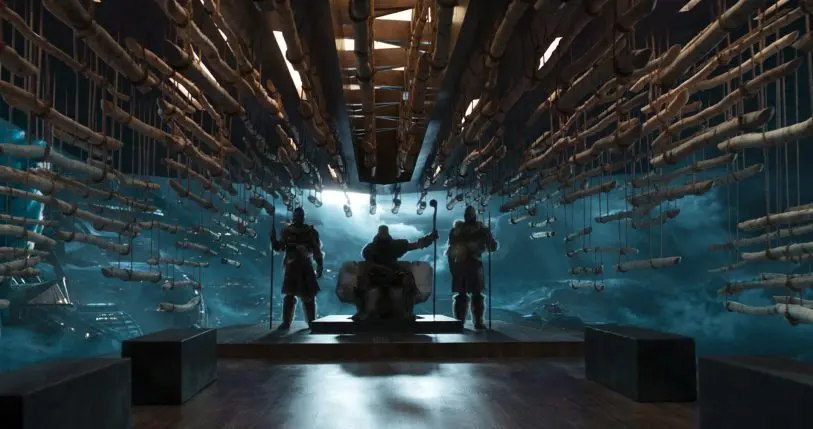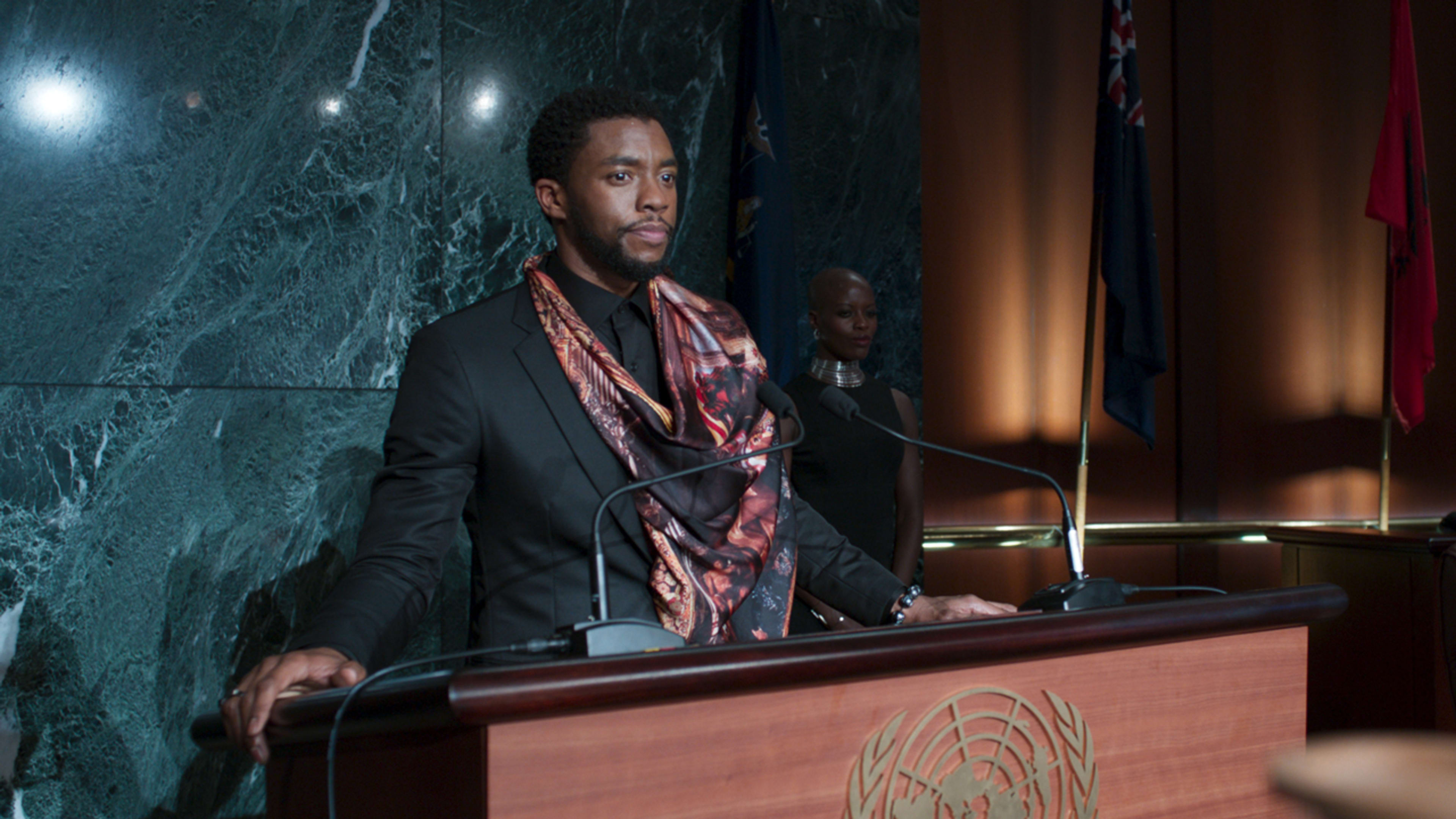The rule in Wakanda is that, on Challenge Day, any warrior from one of the nation’s five tribes may battle the newly anointed king for the throne. Although Alfonso Cuaron’s Roma is the odds-on favorite to win Hollywood’s own personal Challenge Day, the Academy Awards, only one challenger is mighty enough to pull off an upset on coronation day. And don’t you dare say it’s Green Book.
Black Panther is not only the best superhero film of 2018, it’s also just an excellent film, period–artful, beloved, ridiculously profitable, and culturally significant to the point where we’ll be talking about it for years. Thanks to the byzantine preferential voting system that the Academy uses to determine Best Picture–voters rank nominees 1 through 8, and the winner is the movie with the broadest overall support, even if it comes from voters’ second- and third-place choices–there is a plausible (if remote) scenario that a film as beloved as Black Panther could actually win. The very thing that most prognosticators say takes it out of the running–the fact that it is, you know, a superhero movie–is what would make its achievement even greater: that this is what a superhero movie can be. Suddenly, the prospect of getting saddled with six of these things a year for the rest of eternity seems less bleak than it did before.
Much internet ink has been spilled describing how important Black Panther is, in terms of representation both in front of and behind the camera. There’s no reason at this late date for me to explain what it means for a film to so thoroughly trounce the myth that international audiences won’t show up for a majority-black cast. I probably don’t have to mention either what a paradigm-shift it is for young kids to see a movie where all the women are formidable warriors (Danai Gurira’s Okoye), genius scientists (Letitia Wright’s Shuri), or love interests who never need to be rescued because they’re actually spies (Lupita Nyong’o’s Nakia.)
In all the conversation about Black Panther’s importance, though, we may have lost sight of how amazing it is that a movie this important is also a riveting, rip-roaring crowd-pleaser. And while superhero movies are indeed traditionally designed to please four-quadrant crowds, with the notable exception of Ang Lee’s brazenly esoteric Hulk, if director Ryan Coogler removed a few elements from Black Panther, it could stand on its own without even being a superhero movie.
If T’Challa (Chadwick Boseman) never donned the Black Panther costume, costumes being the prime indicator that you’re watching a superhero movie, we’d still be left with an epic story of Shakespearean familial betrayal and a man searching for both his own soul and that of his nation. Similarly, the villain of the film, Erik Killmonger (Michael B. Jordan), is far from a traditional comic book movie villain. He is in fact a sympathetic character who bears the scars of systemic racism in the U.S. and is fighting back (in questionable ways, granted). We’re far from the realm of indestructible baddies hell-bent on destroying the world with an enormous laser beam for some reason. Black Panther is faithful to its comic book origins, but it never feels definitively comic book-y.
The film explores the legacy of the United States’ original tragedy, slavery, and with Wakanda, boldly imagines what could have been for Africa had European colonizers and slave-traders not ravished the continent. (“Bury me in the ocean with my ancestors that jumped from ships, because they knew death was better than bondage,” Killmonger says in one of the film’s most devastating lines.)

What really cinches Black Panther’s Best Picture worthiness, though, is that it is straight-up art–a cinematic miracle of storytelling and spectacle wound together. The composition of each frame is immaculate, the exposition is delivered economically, the world-building is subtly well-constructed, the character moments are generously spread amongst the entire roster, and the action scenes feature one-shots that rival Cuarón. This is bravura filmmaking; beautiful, bold, and thrilling to behold.
Audiences certainly thought so. In addition to becoming the third highest-grossing movie of all time, Black Panther hit a rare level of cultural saturation. It tosses out Halloween costume ideas like a T-shirt cannon, it made “Is this your king?” a canonical catchphrase, it spawned a “Welcome to Wakanda” showcase at New York Fashion Week, and its soundtrack was nominated for Album of the Year at the Grammys. This movie was everywhere in 2018, and its ubiquity is thoroughly deserved.
The idea of the pandering Green Book winning against such a vibrant contender would be an act of villainy far outpacing anything Killmonger could muster.
Recognize your brand's excellence by applying to this year's Brands That Matters Awards before the early-rate deadline, May 3.
